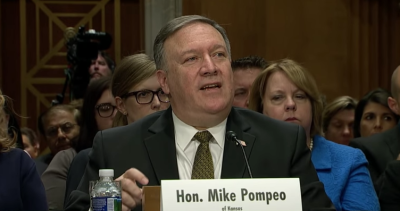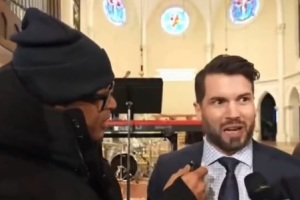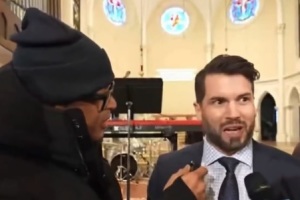Pompeo: A Proven Leader for the State Department

When the news broke on Tuesday night that CIA Director Mike Pompeo had met with North Korean leader Kim Jong-Un, I was not surprised. Pompeo had long ago established his importance to this administration and his understanding of geopolitics. Pompeo's skills are precisely why the president nominated him to be the next Secretary of State—and why it's so absurd that Democrats are reluctant to confirm him.
Considering the increasing gridlock in the Senate over President Donald Trump's nominees, this is a good time to remind our Democratic friends of Pompeo's many qualifications—qualifications that have only increased since he earned Democratic support to become CIA Director just last year. Obstructing such a nominee would be a bad look indeed for vulnerable red state Democrats ahead of their upcoming elections.
Pompeo's resume is remarkable: First in his class at West Point. Five years in active service during the Cold War. Harvard Law School graduate and editor of the Harvard Law Review. Entrepreneur, member of Congress, Director of the CIA. It's a resumé that sounds like a movie script, the kind of experience and accomplishments that carry appeal across party lines, and which have prepared him to serve as America's top diplomat and implement the president's America First foreign policy.
Leading the CIA, Pompeo worked in tandem with allies and partners to advance American interests likepreventing terrorism and safeguarding the integrity of democratic elections. He also confronted those who threatened our interests and security: Pompeo's CIA acted quickly last year to provide the president with a high-confidence assessment that the Syrian regime had used chemical weapons against its own people, laying the groundwork for the missile strikes against Syrian President Bashar al-Assad's regime. Under Pompeo's leadership, the CIA was able to strengthen U.S. intelligence on North Korea, leading to the interdiction of shipments to the Hermit Kingdom in violation of U.N. sanctions.
When I served as U.S. Ambassador to the United Nations Human Rights Commission, I saw firsthand how vital it is that our diplomats have the knowledge and experience to handle delicate matters of national security and international peace. Pompeo would bring both attributes to the State Department. The Senate should act swiftly to confirm Pompeo—just as it did when President Trump nominated Pompeo for his current role as director of the CIA last year.
The Senate confirmed him for his current position by a 66-32 vote. Among the Democrats who voted yea were senators Joe Manchin (W.Va.), Heidi Heitkamp (N.D.), Joe Donnelly (Ind.), and Claire McCaskill (Mo.). If these senators obstruct Pompeo's nomination ahead of their elections, how will they explain that to their voters? The skills he showed at Langley won't travel to Foggy Bottom?
So what, exactly, has changed since then? Clearly, the difference is political pressure from the far-left base. But these senators should not let the appeal of #Resistance and pressure from the far Left blind them to what is best for America. There is no rational reason for Democrats to obstruct a highly qualified nominee that they approved last year, especially at a time when the nation faces foreign policy challenges and national security threats in Syria, North Korea, China and Russia. Obstructing Pompeo would weaken our standing in the world, limiting our ability to conduct vital diplomatic relations mitigate these challenges and threats.
If Democrats block Pompeo, voters will recognize their efforts for what they are: obstruction and political grand-standing. Americans can tell the difference between a good-faith effort to block an unqualified candidate and an attempt to thwart Trump's agenda at any cost.



























